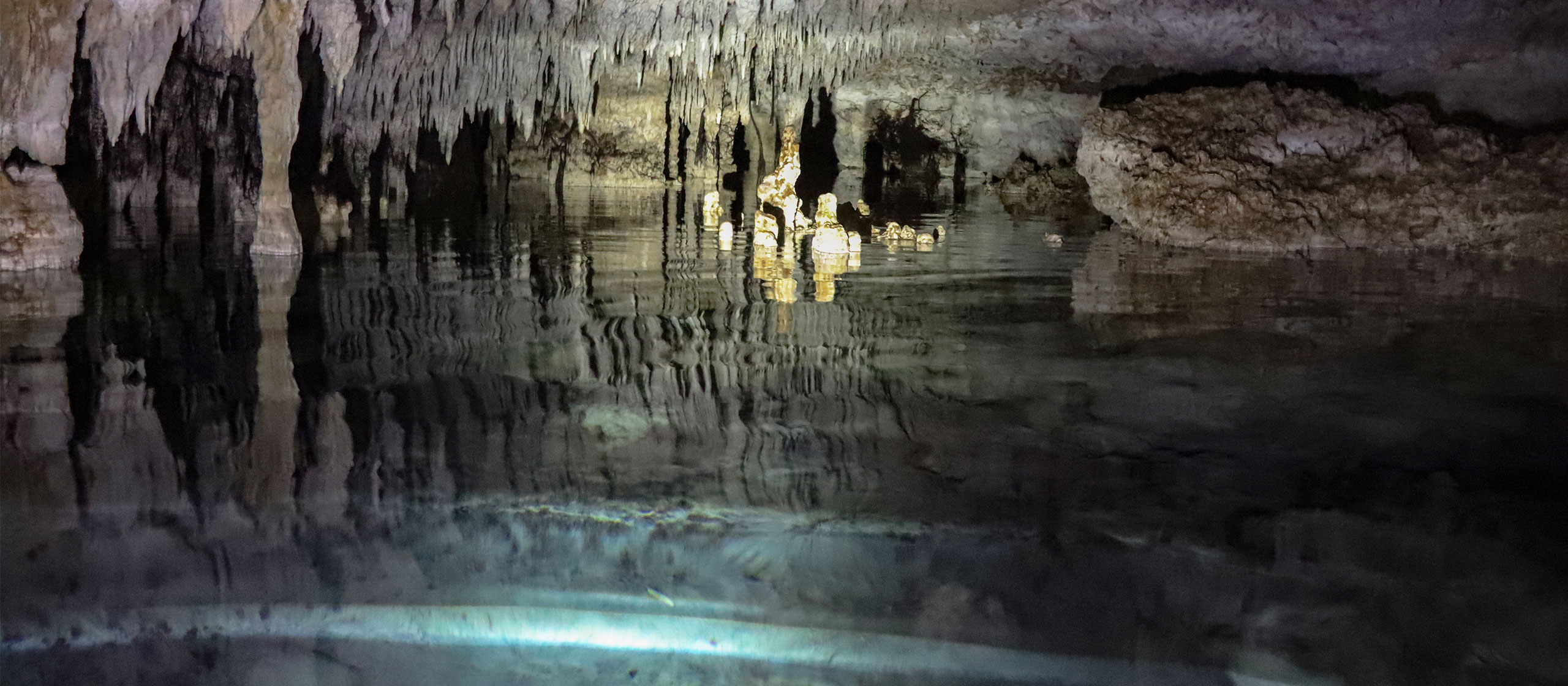Dive Travels
A victory for the cenotes: keeping up with the Mayan Train project
Editor’s note: This is an update to our original story, SAVE The CENOTES, published in March 2022 about the threat to the cenotes in Mexico’s Yucatan Peninsula as a result of the Mayan Train project. Though construction has been temporarily halted, the situation is volatile, and the threat to the cenotes remains. We will continue to supply you with updates as they become available.
Back in 2010, then a baby diver with less than 50 dives in my logbook, I discovered the mesmerising magic of the cenotes. These caverns and caves where freshwater meets salt water in a staggering physical phenomenon called halocline were and are still revered by the Mayan community today. Diving the cenotes left me eager to come back as an experienced diver. Twelve years and hundreds of dives around the world later, I was back for six weeks in the Yucatan Peninsula of Mexico. I can tell now without a doubt that it is a unique experience like no other in the world.
Imagine my horror when I discovered what was happening in the Yucatan Peninsula. Even if I get that building a train can be seen as an eco-friendly* approach to develop transportation and bring new economic opportunities, should it be done at all costs? Local activists made it clear: the Mayan Train (“Tren Maya” in Spanish) project needs a proper environmental assessment. And none of this was done before the construction works began.
Beyond protecting the jungle ecosystem filled with staggering wild species such as jaguars, spider monkeys and motmot birds, and more importantly, the access to freshwater, what struck me was also the security issue it poses. How could any engineering company go on building a railway which weight and vibrations would likely collapse this limestone Swiss cheese without filling it up with concrete? Indeed, most companies which initially bid for the project withdrew because it didn’t make sense.
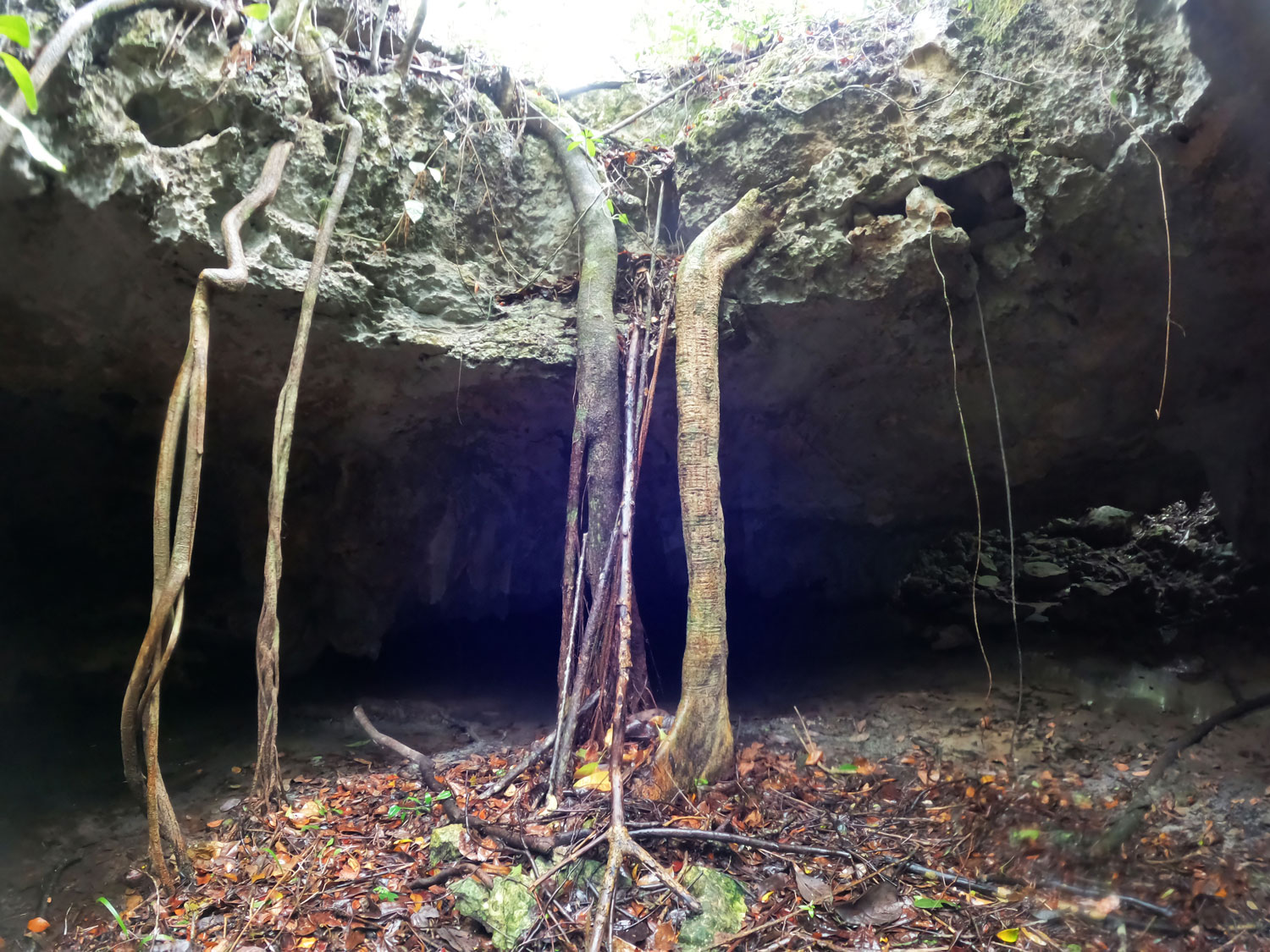
That’s when the Mexican government brought the army to clear up the jungle**. Because if somehow the pandemic slowed down the project, the current government wants to rush things before the end of its mandate in 2024. Whatever the choices made now, this is already completely unrealistic (last March, only 15% of the tracks of the entire project were completed).
The Mayan Train is a federal project crossing several Mexican states from Chiapas to Quintana-Roo, linking UNESCO heritage sites such as Palenque, Calakmul and Chichen Itza over 1,500 km of rail tracks. The stakes are high. The main issue lies with Section 5 of the Mayan Train, which goes from Cancun to Tulum (The entire route counts seven sections). If you are one of the lucky scuba divers who explored Mexico, you know this is where the vast majority of the beautiful cenotes we all fall in love with are. One of the considered routes would even cross the popular Dos Ojos Park.
The work of local activists is an inspiring David against Goliath story. If ideas are everything to fight back, local activists also invest their own money to get lawyers or print documents. Among their numerous actions, they got a federal court to rule a suspension based on the infringement of the Mexican constitution, which guarantees rights to a healthy environment. This happened during the month I spent in Playa del Carmen last May. Judge Adrian Fernando Novela ruled the final suspension of the works of Section 5 of the Mayan Train.
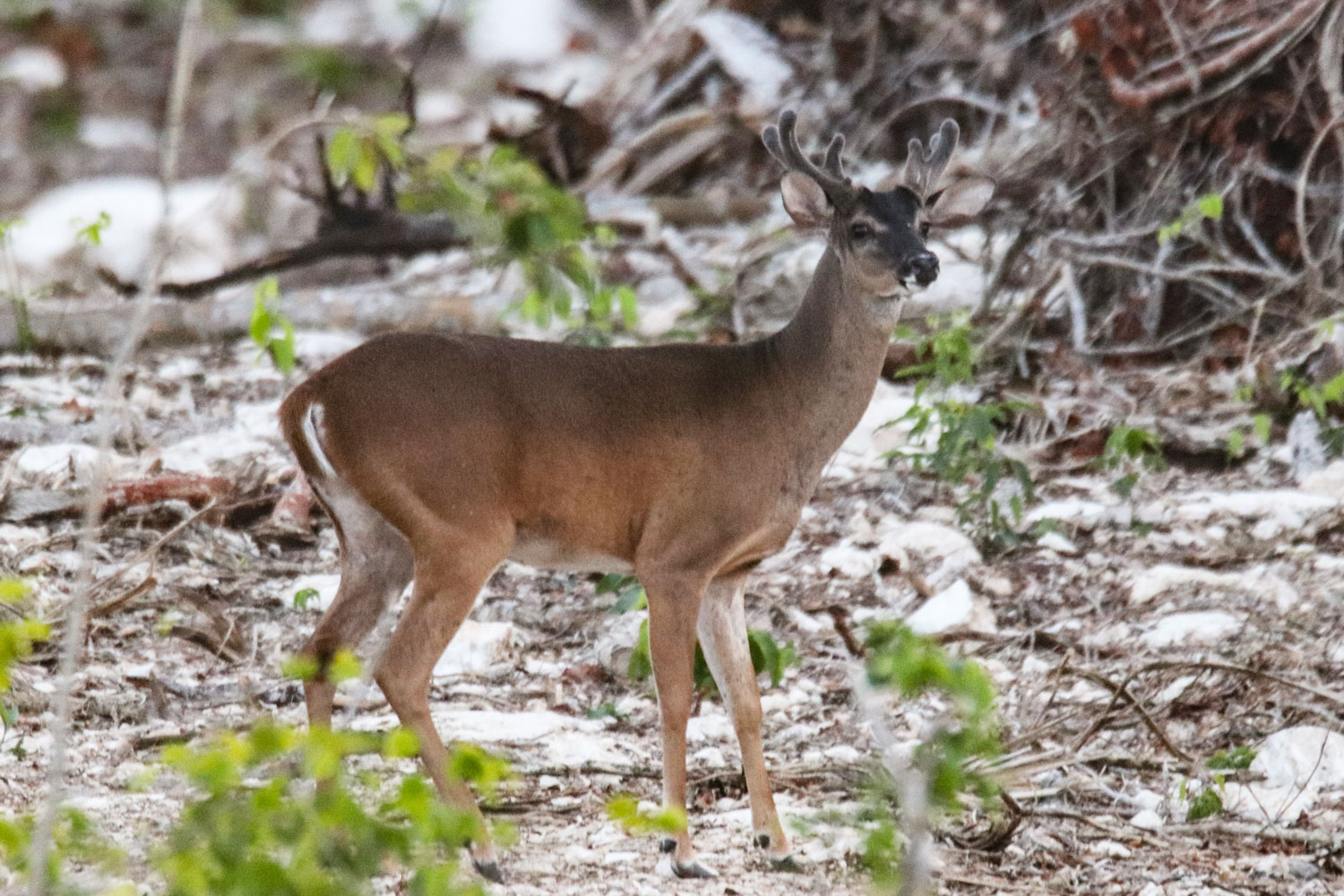
I reached out to some local activists behind the collective “Selva me del tren” (the name is a pun in Spanish between the word “salva”/save and “selva”/jungle) and asked them about what we should expect next. Because indeed, even if we all welcome the news with joy in Quintana-Roo, we all know too well this is not the end of the story.
Jose “Pepe” Urbina is a well-known local cave diving guide of the Riviera Maya who has been diving the cenotes for the last 20 years. Shocked by the lack of the environmental considerations of the Mayan Train project, he gathered a group of concerned scuba diving instructors and guides working in the Playa del Carmen-Tulum area. The #SelvaMeDelTren collective counts now nearly 150 active members and is followed on social media by thousands of supporters.
“The final suspension is a triumph because it means that the law is on our side. The law recognises our rights to live in a healthy environment. Now, we understand this is a legal measure. The battle is not over. We know that the people in charge of the train construction don’t care about the environment and won’t respect this resolution. They will try to bend the law, in one way or another, so they can finish their project.
This is why our action continues. We need people to understand what we want to protect and why. Our lawyers are currently extending our legal efforts so the judges can give total protection, once and for all, to stop this ecocide. They can then restart the train works in another location like along the highway 307, which wouldn’t generate so much damage. All they have to do is to lead a proper environmental investigation, done correctly, to obtain the construction permit.”
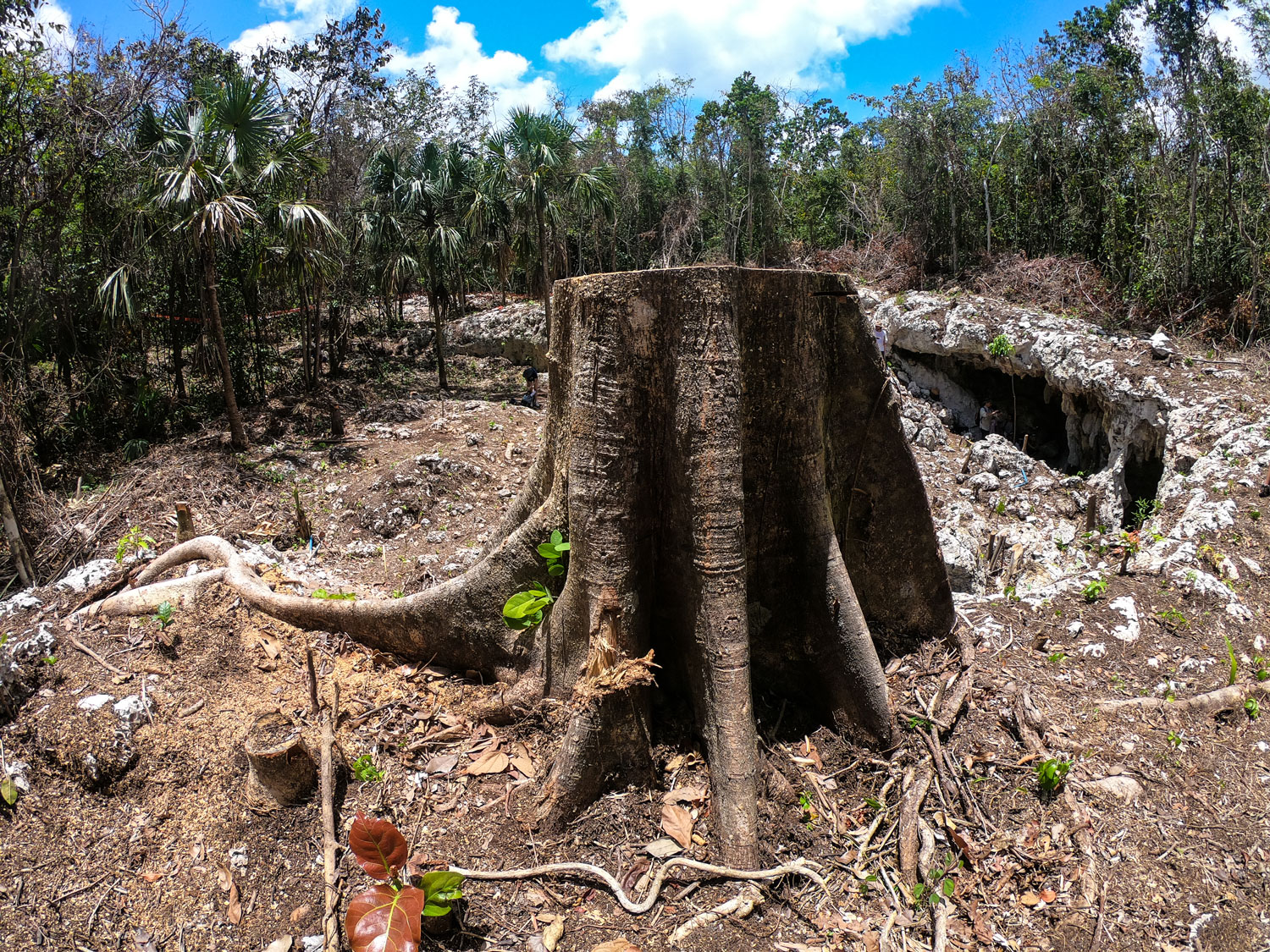
Christine Loew is a German scuba diving instructor who has lived in Playa del Carmen for 18 years. She is one of the supporters of the “Selva Me Del Tren” collective. As one of the members of the local cave diving experts’ community, she is making her best effort to bring international awareness to the potential fate of the fragile cenotes she fell in love with, dive after dive, with her clients coming from Europe.
“Every day, I introduce a visitor to the beauty and uniqueness of the caves here. I have been following the development of the Riviera Maya area with increasing concern as most of it looks uncontrolled and unregulated. There are many challenges to keeping a balance between maintaining its stunning nature and creating economic opportunities. The Mayan Train is not only going to destroy trees and wildlife habitats but also the aquifer providing the water we depend on.
We need to stop unregulated exploitation of the area. With the “Selva Me del Tren” collective, we demand environmental impact studies that tell us if the project is really bringing progress or just destroying the very nature we depend on to survive and make a living.
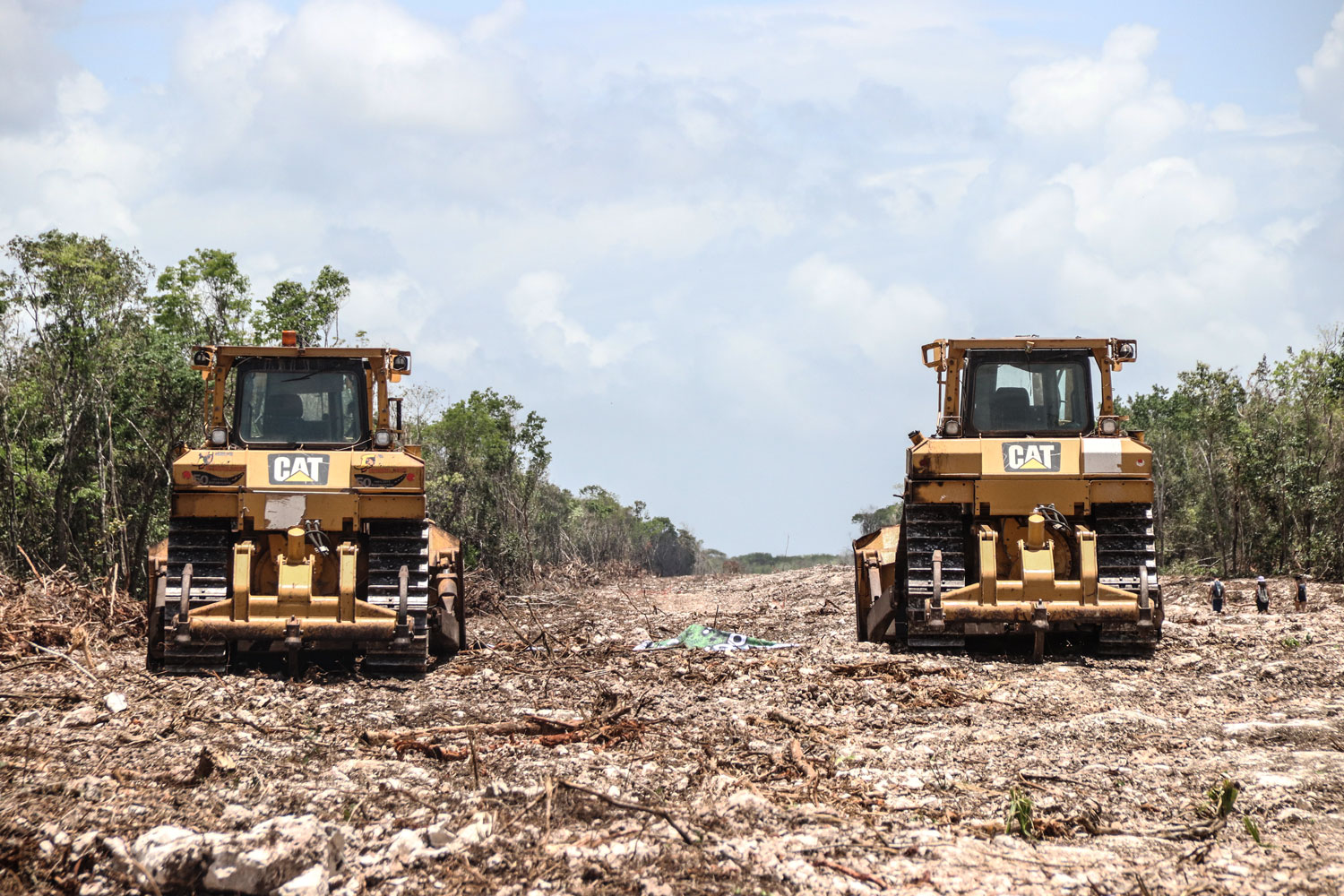
I also believe that this mega project needs more international attention. We are not only talking about how it influences Mexico but the green lung of the jungle of the Riviera Maya and the pristine water that runs through its caves and underground rivers. They are a natural right to humankind as a whole.”
Please help us bring more international awareness to what is going on in the Yucatan Peninsula by sharing this article on social media or by email. You can also sign this petition to show the world is watching.
*Provided you power it with clean electricity, but Mexico still produces 76% of its electricity on fossil fuels (gas, oil and coal – source IEA.org); besides, trains were announced to be diesel-powered on most of the route.
**Unfortunately, already done on more or less 40 km by 50 m, without any environmental assessment nor change of use permits along the section 5 from Cancun to Tulum.
Sources:
- Selvame Playa del Carmen
- López Obrador, sobre la suspensión del tramo 5 del Tren Maya: “No van a poder detenernos”
- Juez suspende indefinidamente construcción de un tramo del "Tren Maya" en México
About the author
Florine Quirion is a writer, underwater photographer, and dive travel blogger at World Adventure Divers. She dives in tropical to extreme cold waters and selects her destinations where adventurous diving and cultural discoveries are a part of the journey.


